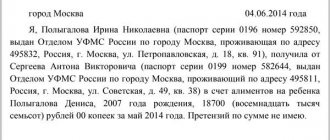Civil marriage is the most popular family model today, although from a legal point of view it cannot be called such. On the rights of such spouses and how to prove a civil marriage in court, Russian family law has unofficially established the concept of actually existing marital relations, although, often, a lot of effort is required to prove their existence. Despite this, many common-law spouses defend their rights to each other as if an official marriage had taken place between them.
What is a civil marriage?
What is meant by such a pleasant concept as civil marriage? This is a completely unusual union of two partners, most often a man and a woman. They lead a common life, have a sex life, share finances and do other usual things, but at the same time they have a different last name.
Let's celebrate! If you look at this situation at the legislative level, these two people are not relatives, and accordingly, they do not have any rights to dispose of property after death. However, in every situation there are many exceptions.
Opening an inheritance and what you can get
An ex-husband's inheritance is property that was received or acquired by a man during his lifetime. Property rights are transferred on the day of death of the testator to his successors. And although there is no full possibility of disposal yet, the heirs will already be the legal holders of the property left behind.
Inheritance (Article 1110 of the Civil Code of the Russian Federation) is the transfer of rights from one person to another as a result of the death of the giver. The inheritance mass, which is what all the property left behind is called, may include various objects of ownership.
- Material: house, apartment, car, land.
- Financial: shares, shares in LLCs, deposits.
- Legal: debt obligations.
The opening of an inheritance (Article 1113 of the Civil Code of the Russian Federation) occurs immediately after the death of the testator. In this case, the receivers must contact a notary and draw up an application for inheritance.
Rights of a common-law wife after the death of her husband
As mentioned earlier, a common-law wife has no right to dispose of the property of her deceased lover.
There are several cases - exceptions when she can enter into inheritance rights legally:
- An agreement was concluded between them. For example, they took out a mortgage for two and paid it off in full for several years. According to this document, they have common rights to real estate.
- The illegitimate spouse, anticipating his premature departure, made a will, according to which all his property belongs to his other half.
- If a woman has been dependent on a man for more than one year, she can receive an inheritance in a certain amount through the courts.
- If a couple has children together during the period of their cohabitation, then they will be the legal heirs, and the wife in this case can act as the legal representative.
- If a marriage contract was drawn up through a law firm.
It is worth noting: That the prospective widow, before receiving an inheritance, must prove her case before the law; this procedure can drag on for several months.
Position of the Supreme Court
The Supreme Court did not support the arguments and position of the lower courts. It recalled the explanations of the Plenum of the Supreme Court dated May 29, 2012 No. 9 “On judicial practice in inheritance cases.”
According to paragraphs. “c” of paragraph 31, a person who has been on the full or partial support of the deceased for a year can be recognized as a dependent. At the same time, a dependent may have another source of income; the Plenum of the Supreme Court proposes to evaluate the ratio of his own income and the assistance provided by the testator.
According to the Supreme Court, the lower courts did not properly assess the financial assistance that Maria Ivanova received from her common-law husband. For this reason, the courts were unable to determine the relationship between Ivanova’s own income (pension 5,847 rubles and disability payment 1,402 rubles) and the amount of financial assistance from her deceased common-law husband. Maria Ivanova claimed that for a year before his death, Ivan Petrov transferred money from renting out an apartment to her bank account - this was confirmed by a bank statement. According to the Supreme Court, the lower courts rejected this evidence without reason.
Based on this, the civil panel of the Supreme Court overturned the judicial acts of the lower authorities and sent the case for a new trial (case No. 5-KG 20-66-K 2).
How can a common-law wife obtain inheritance rights?
In order for a wife to be recognized as a legal heir, she must complete several basic steps.
Step 1. Required evidence
The woman will have to be patient. The procedure of proving your case can take a lot of time.
In order for the law to be on her side, the following documents must be presented:
- A medical certificate from a local clinic stating that she was unable to work for more than one year due to health reasons and was forced to support herself by supporting her partner (she was his dependent). In some cases, this period may be shorter, for example, if she has lost the ability to work independently during the period of cohabitation.
- Sales receipts for any joint purchases; this list also includes payment of all bills, including utilities.
- A certificate of income for the last period (from three months to one year), it is confirmation that the widow contributed to the running of the household.
Good to know! The easiest way for a common-law spouse to prove that she is right is if she and her husband had a common registration; if they do not, then they will need to complete the second step.
Step 2. How to prove the fact of cohabitation?
You can prove the fact of cohabitation as follows:
- Show receipts for any servants associated with the property.
- Provide the bailiffs with written evidence from neighbors, sellers in nearby stores, the post office and representatives of other organizations close to the house that the couple actually lived together.
- Show off photographs, audio recordings or video files that show that the couple lived together.
Let's celebrate! It is imperative to indicate the deadlines, since a common-law spouse has rights to inheritance only if she has lived with this man for more than one year.
Amount of state duty for ex-husband
The cost of state duty is one of the key points in the issue of inheritance. The amount of the fee depends on the degree of relationship with the deceased citizen.
The law provides for a reduced fee for spouses, children, parents, sisters and brothers. It is 0.3% of the value of the inheritance.
However, the ex-husband is not included in the list of beneficiaries. When entering into an inheritance under a will, he must pay 0,6%.
A similar rule applies to dependents. For example, if the former spouse was supported by the testator. He pays a state duty of 0.6% of the value of the property.
How to write an application for inheritance if there is a will?
The most guaranteed way to prove that the widow is indeed an heir is to present the will left by her husband. In this case, she will definitely become the owner of the property listed in it. But you still need to prove your case by presenting several documents.
Required documents
- An application containing all the notary's details, a list of inherited items and your personal data.
- Photocopy of an identity document.
- Will.
- Death certificate.
- A document confirming the status of the spouse.
- An extract from the house register from the place where the cohabitant was registered.
Good to know! This entire list of alleged evidence should be presented to the notary. Depending on the situation, this list may be supplemented. For example, if you have common children, you will additionally need to present a birth certificate.
Deadlines for writing
We should also talk about the time frame within which all documents must be completed. It is exactly 6 months from the date of death of the common-law spouse.
If this time was lost for some reason, for example, a person waited a long time to receive a certificate, then it can only be restored through a judicial procedure.
Can an ex-husband be a dependent?
If there is a will, its provisions are taken into account. Regardless of who the property of the deceased is assigned to, the notary must find out whether there are any obligatory heirs among the applicants.
One of them may be a disabled dependent. For example, ex-spouse. A disabled dependent is entitled to ½ of the share that is due to the heir by law.
If the testator did not have time to draw up a will, then the property will go to the relatives in order of priority. Dependents are called upon to inherit on an equal basis with other relatives of a deceased citizen (Article 1148 of the Civil Code of the Russian Federation). Basic requirements are the presence of an appropriate status and cohabitation with the testator for more than 1 year .
Difficulties in obtaining an inheritance for a common-law wife
According to legal experts, the right to enter into a legal inheritance is the most complex, responsible and lengthy process. In almost 85 percent of cases, six months is not enough to complete this process.
There are several factors that can cloud its course:
- As a rule, relatives of a deceased person cannot assign part of the property to a stranger (in the legal sense) to a person.
- The persons met not long ago and lived in the same territory for less than one year.
- Lack of a will.
- The deceased person has minor children from previous legal marriages (in this case, almost everything will go to them).
- The presence of elderly relatives who were forced to be under his care for a long time, most often these are blood relatives of the first degree - blood parents.
However, all of the above problems fall into the background if the couple had common children, registration and left a notarized will.
Statistics confirm the fact that in recent years a huge number of disputes between common-law spouses have appeared. They cannot enter into an inheritance after the death of one of them, divide property after the breakdown of a relationship, draw up important documents, and much more.
Lawyers advise! It is imperative to legalize the relationship in order to avoid such problems. In this case, the relationship between the two persons will enter into legal force and it will be several times easier to subsequently prove that you are right.
Didn't find the answer to your question? Find out how to solve exactly your problem - call right now: +7 (Moscow) +7 (812) 309-53-42 (St. Petersburg) It's fast and free!
Unofficial marriage and rights of spouses
Since in a civil marriage there are no legally established mutual rights of husband and wife, each of them acts in various legal relations as a free citizen.
Features of unofficial marriage:
- Since the regime of common joint property is not established for unofficial spouses, each of them owns what his right of ownership is registered for. Therefore, it is recommended to register shared ownership in both the wife and husband during the transaction. The size of the shares is determined by agreement between the spouses.
- Everything that common-law spouses earn is not considered their common family budget, and each of them has the right to manage their own money at their own discretion. The only thing that can be done jointly is to open a joint bank account and replenish it. But in case of disagreement, it is not known how to divide it, although it can become “iron” evidence in court confirming a civil marriage.
- In the event of separation between an unofficial husband and wife, loans and debts are not divided, but remain with the spouse for whom they are registered. For example, a receipt, a loan agreement, a mortgage, a loan, etc.
- When alienating any property (apartment, land, house, car), it is not necessary to obtain the consent of the second spouse. The law establishes this rule only for legally married persons.
- If one of the cohabitants has problems with the criminal law, the second spouse is obliged to testify against him, since he is not his relative based on the marriage certificate.
- When cohabiting, it is impossible to draw up a marriage contract that would regulate the most important property issues. Any agreement signed by common-law spouses as such is considered invalid.
In practice, the most pressing issue related to living space arises. If the husband purchased an apartment or an individual residential building and registered this object in his name, then he will be considered the sole owner, despite the fact that both invested money in its purchase. If the spouse did not financially participate in the acquisition of the real estate, she has no right to claim it.
In order for a spouse to defend her rights to an apartment or other real estate, she will have to go to court and prove that part of her money was also invested in the acquisition of the disputed property. When dividing an apartment purchased during a legal marriage, a married woman would automatically receive half, without proof of her right to it.
Inheritance of an apartment by a child born out of wedlock
If the actual wife cannot inherit the property of the deceased, this does not mean that their joint child does not have such an opportunity. According to the law, he is included in the first place of successors and, until he reaches the age of majority, is considered the legal holder of an obligatory share of the inheritance, and his mother is his legal representative.
There is one important condition - the deceased common-law spouse must officially be the father of the child. Otherwise, the woman will first have to prove paternity in court.
And then confirm with the notary the child’s right to inheritance according to the law, due to his blood relationship with the father, based on the decision made. Documents confirming the relationship also include an adoption paper and a birth certificate.
When inheriting by will, a situation may arise that the deceased spouse orders the apartment to be transferred to any other person. Then the child has no right to apply for housing. Such a decision can be challenged in court: if the will was drawn up in violation of the law, it is declared invalid. In this case, the rules of legal inheritance will apply.
During his lifetime, a parent can voluntarily recognize an illegitimate child as his own by taking the necessary legal actions. If paternity cannot be confirmed, it will be established in court.
What to do if legal recognition of inheritance rights is denied?
If a notary refuses to issue a certificate of inheritance without a legal reason, the common-law spouse must independently prove the opposite. It is necessary to use several ways to restore rights.
First, a claim should be made that describes the situation and states the requirement to issue a certificate due to the lack of legal grounds for refusal.
The document must be sent to the notary office handling the inheritance case. Secondly, if within 1 month the applicant has not received any response, he can send a similar claim to a higher notary chamber, just do not forget to add to it the fact of an illegal refusal to issue a certificate by a lower-level specialist of the office.
The Chamber is obliged to consider the complaint, check the notary’s action for legality and take measures to eliminate the negative consequences. Thirdly, if a negative response is received from the notary chamber or the claim is ignored, the common-law wife will have to go to court.
It is necessary to write a claim and attach to it a notarial decree confirming the fact of refusal and other documents included in the standard package (Article 132 of the Code of Civil Procedure of the Russian Federation). The applicant must also indicate the oral refusal in the claim.
You have only 10 days to submit an application from the date of receipt of the negative decision. If the court makes a positive decision, the notary will be obliged to compensate the plaintiff for all losses and issue a certificate of inheritance.
How to determine jointly acquired property
Expert opinion
Nina Matveeva, real estate consultant
The right to own the property goes to the person in whose name the property was originally registered. You can't rely on simple promises. It is better to register shared ownership immediately so that everyone has their own part. Then, when breaking up, it will be easier to confirm your rights. They will be documented.
Everything that the partners had before living together remains with them. The other half will not be able to claim this. During the trial, the judge uses the rules of civil law.
The following documents will help the parties:
· purchase and sale agreement, where the buyer and the cost of the object are indicated;
· deed of gift between spouses, cohabitants (although if the property was transferred to one spouse, the second will not receive anything);
· agreement of shared ownership (the number and size of shares are indicated there), for example, a deed of gift for a share in an apartment
· receipts (for example, real estate is registered in the name of one person, but he writes a receipt confirming that he took the amount of money from the second spouse to purchase the property);
· receipts, payment checks – evidence of a citizen’s financial investments.
Sometimes spouses register the purchased property for their joint children. Then the disputes concern guardianship, with whom the minor owner will live.
How can my ex-wife accept an inheritance?
If the ex-wife has legal grounds to claim the property of her ex-husband, then she will need to go through the standard procedure for accepting an inheritance.
To do this you need:
- contact a notary with a statement of intention to enter into an inheritance. A sample of such a document can be studied on the Internet or filled out at a notary organization;
- if inheritance occurs on the basis of a will, then it is required to submit the document itself in which the former spouse is declared as an heir;
- when inheriting property as a dependent of the deceased, it is required to confirm the fact of incapacity for work - reaching retirement age, a certificate of the presence of a disability group, or certify the fact of living with the ex-husband in the same living space;
- present a standard set of documentation - title papers for property, technical and evaluation documentation. You can find out exactly what documents are needed in a given situation from the notary who opens the inheritance case.
When entering into an inheritance and receiving the appropriate certificate, you must pay a duty fee. It will be 0.6% of the total value of the inheritance, but not more than 1,000,000 rubles.
A tax benefit is provided for disabled people of groups I and II. You will need to pay 50% less.
Those who lived with the citizen before and after his death on the territory of the living space, which is inherited, may not pay the state duty.
We remind you that even if you thoroughly study all the data that is in the public domain, this will not replace the experience of professional lawyers! To get a detailed free consultation and resolve your issue as reliably as possible, you can contact specialists through the online form .
Division of property of common-law spouses
When the union breaks up and the partners are not ready to divide the common property peacefully, the court intervenes. More precisely, an interested party who believes that his/her rights have been violated files a lawsuit. Each spouse must certify the extent of financial investments and other participation.
What can be proven:
- purchase of housing - who invested money, how much;
- carrying out repairs - payment for materials, physical effort;
- redevelopment - who initiated and paid for it.
The easiest way is to get witness testimony. The court will accept them. For example, the words of the workers who were renovating the apartment. Who negotiated with them and paid. Documents confirming the financial viability of a citizen - his salary, the presence of other income, an open bank account - have significant power.
When there is no official marriage, housework is not taken into account in such disputes, which complicates the woman’s situation. If she sat at home raising the child while the man worked.









